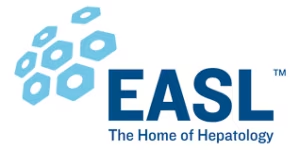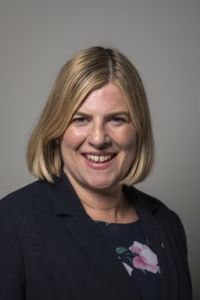The European Association for the Study of the Liver (EASL) is dedicated to advancing liver care across Europe by driving excellence in clinical practice, research, and education. Their core mission is to improve patient outcomes through the development and dissemination of evidence-based guidelines, fostering cutting-edge research, and promoting continuous professional development for healthcare providers. EASL emphasizes multidisciplinary collaboration and supports the integration of new scientific discoveries into everyday clinical care. By facilitating knowledge exchange through conferences, training programs, and digital resources, EASL aims to equip healthcare professionals with the latest tools and expertise to better prevent, diagnose, and treat liver diseases, ultimately enhancing liver health and patient quality of life throughout Europe.
In this interview we speak with EASL’s Secretary General, Professor Debbie Shawcross (King’s College London, London, UK), who discusses the rising challenges in hepatology across Europe, including unmet needs in early diagnosis, equitable care access, and managing complex liver diseases. Professor Shawcross highlights how EASL is addressing these issues through education, research, advocacy, and initiatives aimed at translating innovation into improved clinical practice and patient outcomes.
Q. What is your perspective on the current landscape of hepatology in Europe, particularly in terms of unmet needs?
The current hepatology landscape in Europe is one which represents significant progress but faces many ongoing challenges, as the prevalence of chronic liver disease continues to rise while other chronic diseases, such as heart disease and stroke, fall. The rise in chronic liver disease has been driven mainly by the harmful effects of excess alcohol consumption and the rapid rise in steatotic (fatty) liver disease, which now affects one-third of the adult population, mirroring the increase in obesity and type 2 diabetes. We have made remarkable advances in understanding liver diseases, such as viral hepatitis, steatotic (fatty) liver disease, and cirrhosis, alongside the development of novel therapies which include curative therapies for Hepatitis C. However, significant unmet needs persist, particularly in early diagnosis, equitable access to care, and management of complex, chronic liver conditions. There’s also an urgent requirement to address disparities across regions and improve patient-centric approaches—ensuring all individuals benefit from innovations in hepatology. People living in the most deprived areas of Europe are more likely to die of alcohol-related liver disease and fatty liver disease than people in more affluent areas.
Q. What are the biggest challenges facing patients with liver disease/cirrhosis and the professionals who care for them?
Patients with liver disease and cirrhosis often face delayed diagnoses, limited treatment options in some regions, and the burden of comorbidities, such as metabolic syndrome. Liver transplantation, the only curative treatment for end stage liver disease (cirrhosis), can only be accessed by a minority of eligible patients. Patients also experience significant psychosocial impacts and reduced quality of life. For healthcare professionals, challenges include managing complex cases with multi-organ involvement, staying abreast of rapidly evolving treatments, navigating resource limitations, and ensuring multidisciplinary collaboration. Addressing these challenges requires a concerted effort to improve education, streamline care pathways, and promote early identification of liver disease, allowing intervention at an earlier stage when the disease may still be reversible.
Q. How is EASL addressing these challenges through its mission and initiatives under your leadership?
EASL is the beating heart of hepatology in Europe and is committed to enhancing the understanding, diagnosis, and treatment of liver diseases through comprehensive educational programmes, clinical practice guidelines, and innovative research initiatives. We focus on fostering collaboration among clinicians, scientists, and patient groups to bridge gaps in knowledge and care. EASL’s platforms, including the journal and congresses, serve as vital channels for disseminating cutting-edge research. Moreover, we actively promote policy initiatives and advocate to improve healthcare access and champion liver health across Europe, tackling disparities and unmet needs. EASL is tackling stigma and raising awareness of the harmful effects of alcohol and obesity on the liver. Through our Healthy Livers Healthy Lives initiative, we are proud to support World Liver Day on April 19th promoting liver health and preventing liver disease; 90% of which are entirely preventable.
Q. How can EASL help translate innovative research into clinical practice across Europe?
EASL plays a crucial role by facilitating the exchange of knowledge between researchers and clinicians through its congresses, summits, educational activities, and clinical practice guidelines. We prioritize translating the latest scientific discoveries into practical recommendations and ensuring they are accessible to healthcare providers across diverse settings. By supporting training programmes, promoting collaborative research, and advocating for policy changes, EASL aims to accelerate the adoption of innovative therapies and diagnostics, ultimately translating into improved patient outcomes throughout Europe and across the globe.
Further content in liver disorders.
Editor: Victoria Smith, Senior Content Editor.
Disclosures: This short article was prepared by touchIMMUNOLOGY in collaboration with Debbie Shawcross. touchIMMUNOLOGY utilize AI as an editorial tool (ChatGPT (GPT-4o) [Large language model]. https://chat.openai.com/chat.) The content was developed and edited by human editors. No fees or funding were associated with its publication.
Cite: Debbie Shawcross. Bridging Research and Clinical Practice in Hepatology: EASL’s Approach to Liver Disease in Europe. touchIMMUNOLOGY. 9 July 2025.
 Useful Links
Useful Links
SIGN UP to TouchIMMUNOLOGY!
Join our global community today for access to thousands of peer-reviewed articles, expert insights, and learn-on-the-go education across 150+ specialties, plus concise email updates and newsletters so you never miss out.







